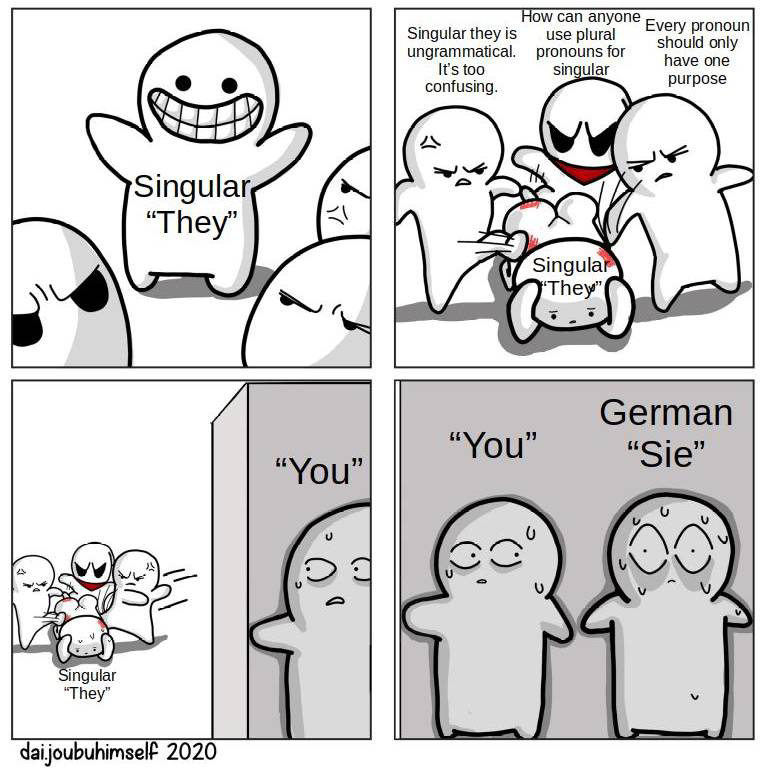this post was submitted on 24 Jul 2023
415 points (100.0% liked)
196
667 readers
95 users here now
Be sure to follow the rule before you head out.
Rule: You must post before you leave.
founded 1 year ago
MODERATORS
you are viewing a single comment's thread
view the rest of the comments
view the rest of the comments

I have normally used "they, their and them" when referring to a singular person for about twenty years because I thought that "he/she" and "his/hers" looked ridiculous in emails.
For example; "Next time the engineer feels like he/she needs to overhaul the code..." versus "Next time the engineer feels like they need to overhaul the code...". Clean and simple.
Example of current use:
Bob - "Hey Jo, Frank thinks we should tweak widget X."
Me - "Yeah well, they don't know what the fuck they're talking about."
I don't think that sounds weird.
I honestly have never understood why people take the effort to write he/she instead of singular they? Like it's 2 words instead of 1, why bother? Even in academic articles which typically have word count limits lol
Not an expert, but I've followed the growth of this word a little on-and-off.
Disambiguity can be important in a language. But it's complicated. Many times we use "he", "she", or "he/she", gender is not required. Back in the 1800's, the standard was to use "he" when gender was uncertain, unimportant, or ambiguous to a conversation. Obviously it had to do with the presumed defaultness of the male gender.
For a while, people toyed with "it" or "which". Honestly, my personal feeling is that it was the way insult could easily be taken (or given) with "it" that it died out.
"They" probably should not be used in cases a less ambiguous word is more appropriate... But that's when the bigots come out. In most cases, the most appropriate word to reference a person is that person's preferred pronoun if you know it, even if it's a genderfluid pronoun. Why? It's significantly more descriptive than "him" or "her". But these same people who consider "they" too general would break down to acknowledge any person having a gender identity different from their birth sex (and probably their genital birth sex for intersex folks, at that).
What all the offense is REALLY about is that they want to pretend some people are fiction, or subhuman. I think "it" would settle well with those folks. Which is why I'm glad that isn't a default.
In German, there is no singular they, so enbies often have to use "it". Fun times, really.
https://lemmy.blahaj.zone/comment/1382981